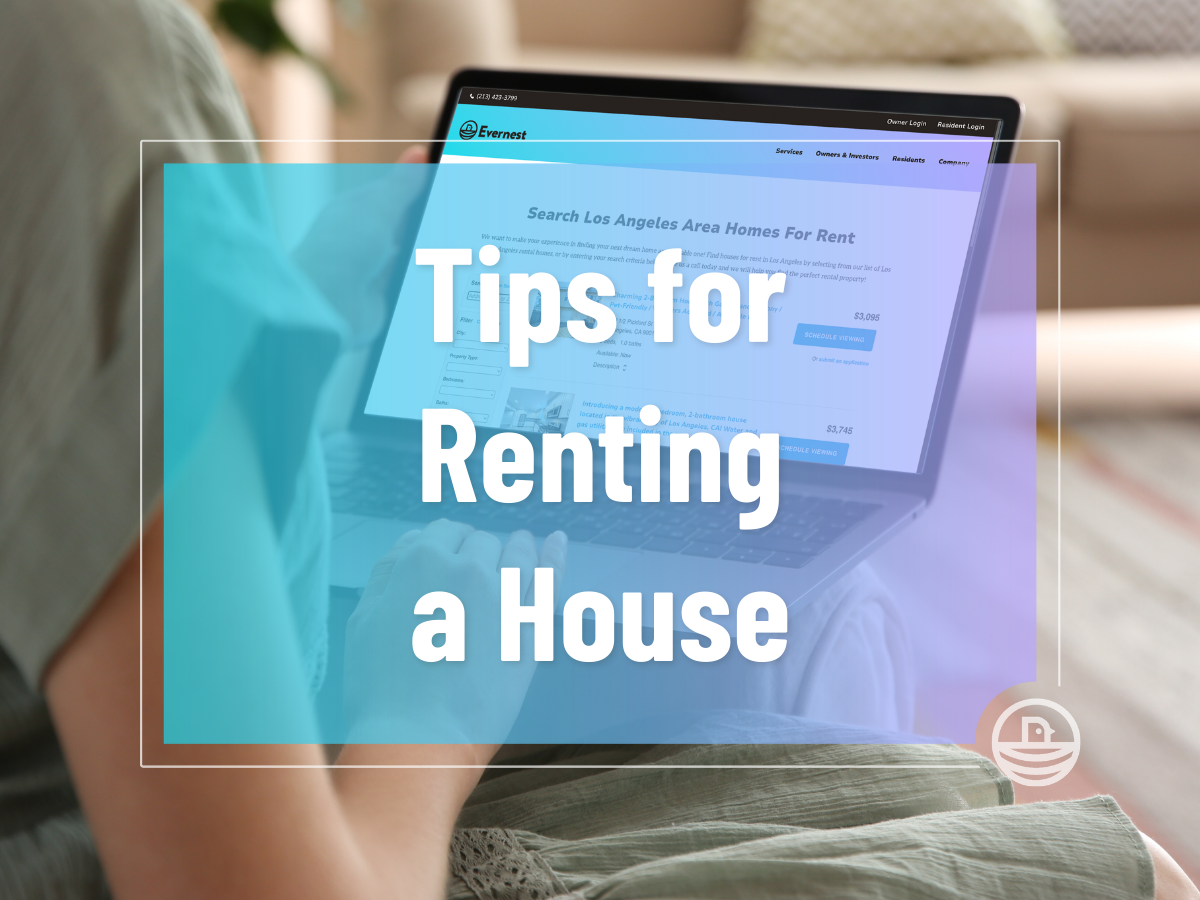Tips for renting a house aren’t always obvious, especially if you’re navigating the process for the first time. But from the lease agreement to maintenance responsibilities, understanding the ins and outs of renting can make your life a whole lot easier.
Luckily, we’ve helped thousands of tenants all across the nation successfully rent their dream homes!
Whether you’re new to the game or a seasoned resident, our top tips for renting a house will help you avoid common headaches, maintain a great relationship with your landlord or property manager, and make your rental truly feel like home.
Let’s dive in!
1. Be Prepared Before You Apply
When you're getting ready to rent a house, preparation is key. Having your documents ready gives you a competitive edge, especially in fast-moving rental markets.
Before you start the application process, be sure to gather:
Proof of income (recent pay stubs or an offer letter)
References from past landlords or employers
A government-issued ID
A recent credit report (you can get one free from AnnualCreditReport.com)
Being organized from the start signals to landlords that you’re responsible and ready to rent. They are more likely to feel confident moving forward with your application if you demonstrate organization and responsibility upfront.
2. Read the Lease — Closely

This is one of our top tips for renting a house. The lease outlines your responsibilities and your landlord’s, so don’t rush through it. And don’t let all the legalese throw you off your game!
Carefully review:
Rent due date and late fee policies
Lease duration and renewal options
Maintenance expectations
Guest and pet policies
What constitutes breaking the lease
If anything is unclear, ask! It’s critical to understand what you are agreeing to before signing on the dotted line and making any agreement legally binding. Clarity between all parties will prevent misunderstandings and headaches down the road.
3. Put Agreements in Writing
Verbal agreements are great for casual chats, but when it comes to your housing situation, get everything in writing. Whether it’s permission to paint, promises to fix a broken appliance, or approval for a pet, document it.
Use email whenever possible to create a paper trail that protects both you and your landlord.
4. Purchase Renter’s Insurance
Another one of our top tips for renting a house? Protecting yourself and your belongings.
Many renters assume their landlord’s insurance policy covers them. It doesn’t. That’s why renters’ insurance is essential — it protects your belongings from damage or theft and covers liability if someone gets hurt in your home.
Renters’ insurance typically offers:
Personal property loss
Liability
Temporary housing if the unit becomes uninhabitable
It’s usually pretty affordable, too, coming in around $15–$30 per month. Think of it as peace of mind in a small monthly payment.
5. Keep Track of Your Rent Payments
No matter how you pay your rent every month — by check, online portal, or app — always keep proof of payment. A record of rent payments helps you resolve potential disputes, build a strong rental history, and could even come in handy during tax season (in some states).
6. Know Your Rights
Residents have a right to quiet enjoyment of their home. While landlords do have the right to enter the property under certain conditions, they typically must provide advance notice, usually 24 to 48 hours, depending on where the property is located.
Understand when and why your landlord can enter the property so you can be prepared if the situation comes up. If you ever feel your privacy is being compromised, review your lease and check local landlord-tenant laws for guidance on how to move forward.
7. Make Home Safety a Priority
This might just be one of our most important tips for renting a house, because it could come down to life or death.
Home safety for renters is about so much more than just locking a deadbolt. When you move in, check for working smoke detectors, functional locks on windows and doors, outdoor lighting, and a secure mailbox. Your landlord or property manager is required to test smoke and carbon monoxide detectors to ensure they are working properly, but it never hurts to check them yourself.
Some other safety steps include:
Locate fire extinguishers (if available)
Ask your landlord about after-hours emergency contacts
Locate the main water shut-off in case of burst pipes or leaks
Plan your fire escape route for all residents and furry friends
A secure home is a comfortable one, and every renter deserves that peace of mind.
8. Request Repairs When Needed
Small repairs can turn into big issues fast, so don’t delay in submitting maintenance requests. And a well-maintained home is a win-win: you get a better living experience, and the landlord protects their property. So, communicate problems with your landlord or property manager as soon as they arise.
Keep maintenance requests professional and well-documented, ideally through email or an online portal. The process for submitting maintenance requests should be outlined in your lease agreement or materials provided before move-in, but be sure to check with your landlord or property manager if you’re unsure of the process for your property.
9. Treat the Property Like It’s Yours
Just because you don’t own it doesn’t mean you shouldn’t care for it. Maintaining your rental helps create a pleasant living environment and improves your chances of getting your full security deposit back when it’s time to move out.
You should consider:
Keeping the home clean, including cleaning larger appliances, removing dusty/dirt buildup, and disposing of waste properly and efficiently
Keeping the home damage-free by hanging decor properly and patching holes when you leave (if allowed by the terms of your lease agreement)
Avoiding unauthorized modifications to the property
Reporting issues before they escalate
A little upkeep goes a long way toward a better experience for you and your landlord. By keeping the property clean, well-maintained, and cared-for, everybody wins!
10. Don’t Break the Lease
Breaking your lease could cost you big, both financially and legally. But lease violations can happen even if you don’t move out of a rental property early. By breaking the terms of your lease, you are violating your agreement and can therefore be forced to remedy the issue or even leave the property.
Some common violations we see include:
Housing unauthorized roommates, or residents not included in the lease
Subletting to a new resident without approval and a new lease agreement
Missing or delinquent rent payments
Owning a pet without prior permission
If your circumstances change in any way, talk to your landlord. By creating an open dialogue, you make it possible for a solution that works for everyone to be found. By keeping secrets or kicking the can down the road, you may just be looking at eviction.
Final Thoughts: Top Tips for Renting a House
Understanding these critical tips for renting a house gives you a major advantage when hitting the rental market. From understanding a lease agreement and all the various terms it includes to ensuring the safety of a rental property, these guidelines offer a path toward a smooth and successful experience.
Ready to put these tips for renting a house to work? Evernest manages thousands of properties across the country, and we pride ourselves on offering unparalleled service to both our residents and our property owners. Browse available properties in your area today!


